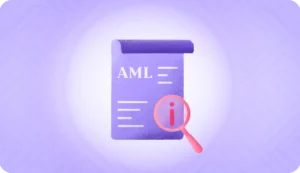Enterprises are now starting to look over their shoulders more often. Checks and regulatory audits by enforcement authorities last year led to AML (anti-money laundering) fines to the tune of nearly USD 1 billion during the first quarter of 2021, as per global governance and risk consultancy Kroll. Regulatory compliance, the manner of ensuring that organizational business activities are carried out in accordance with the governing laws, has seen heightened activity and tougher penalties recently.
Organizations operating in banking and financial services, defense, and healthcare, are among the most regulated. Though, the compliance norms may vary from country to country.
What is Regulatory Compliance: Importance and uses
Regulatory compliance refers to the set of laws, rules, regulations, and guidelines that an organization follows as per the jurisdiction to ensure conformation with the same.
A business is subjected to a wide range of regulations, sometimes overlapping, however, the mandates aim at a uniform outcome— to ensure ethical behavior, integrity and safety, and security of all stakeholders.
What does it mean for these businesses? The rising number of regulations together with interconnected international business operations has seen businesses pay closer attention to regulatory compliance. Especially, with the cost of non-compliance rising by the day. Many companies such as BP, JP Morgan Chase, Arthur Andersen, and more recently Bank of America had to witness the consequences of non-compliance. Not only do the organizations face monetary losses (in terms of fines), but it also tarnishes their reputation in the eyes of the public, leading to a severe blow to their corporate image.
What is a Regulatory Audit?
A regulatory audit is the natural extension of regulatory compliance. In simple terms, the regulatory audit process assesses the organization’s compliance with the regulatory requirements.
Of late, the scrutiny has increased and organizations are undertaking regulatory audits on a regular basis to obtain independent verification of regulatory compliance practices and standards. Though some may be mandated to obtain the certifications, others carry out regulatory audits to avoid risks of non-compliance and errors.
It helps to ensure that:
- Aligning the company’s compliance goals with business objectives and risk management strategies.
- Extracting true value (more than cost) from regulatory compliance.
- Fixing responsibility and accountability, and helping to ascertain regulatory compliance practices are embraced by everyone.
Why is Regulatory Compliance important?
Regulatory compliance standards and procedures provide guidance to an organization. Together with regulatory audits, regulatory compliance helps to establish the organizational protocols in adherence to the rules and laws.
They serve as an important guide by:
- acting as a custodian by guiding business conduct
- inspiring stakeholder trust by upholding organizational standards on regulatory compliance
- moving swiftly with changing regulations
- establishing reputation and brand value, and display the same to government, customers, shareholders
- bringing in transparency in all business activities
- checking slippages, errors, and frauds posing a greater challenge in corporate governance challenges
- participating in bids and tenders also mandates upholding regulatory compliance codes
How to Implement Regulatory Compliance?
The final goal of regulatory compliance is to make sure that the spirit of regulatory compliance is embraced by everyone in the enterprise, in all the business activities. Here are a few steps you can take to begin with:
- Perform regulatory audit: Through regulatory audits, you are able to ascertain your organization’s compliance with regulatory rules, keep the compliance costs under control, and plan resource training.
- Set aside resources and manpower: You need to have dedicated resources to meet the objectives of regulation. From a compliance officer to allocate necessary funds for oversight, implementation, and monitoring activities.
- Follow through with the process: Once the codes are established, it is important that the organization-wide implementation of regulatory compliance rules is carried out. Sporadic adoption does not merit the system.
- Training and skill development: Regulations change every day, and it is not easy to keep a tab on multiple changes all the time. Timely training and skill-development activities help to renew the spirit and keep the momentum going.
How does Regulatory Compliance work across industries?
As stated above, some industries are bound by more regulations than others. The nature of business activities primarily determines the network of regulations an organization is subjected to. Let’s take a look at a few examples to understand how the experience of regulatory compliance varies across industries.
Financial Services: Even though regulatory compliance is now widely implemented across industries, research by McKinsey shows that senior managers in the industry are more comfortable with credit risk management compared to compliance risk controls. In the US, the financial industry is governed by the Dodd-Frank Act and the Sarbanes-Oxley Act (SOX), among others.
Healthcare: The healthcare industry is obligated to follow laws and regulations, which prohibit and protect customers and stakeholders from fraud, abuse, and waste.
The US agency, Health Insurance Portability and Accountability Act (HIPAA) safeguards the citizens and looks after the storage and privacy of personal medical information and data of customers.
Food Production: Food safety is of utmost concern to every regulator. Around the world, governments continually keep an eye on the legislation to ensure the food is safe for consumption. These can cover labeling rules and restrictions on contaminants and residues.
The Food and Drug Administration (FDA) in the US regulates companies operating in the space.
Read more: What is FSSAI & how to register?
What Are The Regulatory Compliance Challenges?
In the ever-changing regulatory landscape organizations often face impediments. To keep up with the regulations and avoid costly damages, organizations across verticals have expanded the scope and size of their compliance function.
The interconnected global businesses today experience an unprecedented level of collaboration, thereby increasing regulatory compliance risks. The biggest regulatory compliance challenges of today are:
- Rising regulatory compliance costs
- Assessing and responding to new regulatory requirements
- Capturing the benefits and opportunities emanating from regulatory changes
- Dependence of risk management on the maturity of the compliance function
- No correlation between technology upgradation mitigation of risks
Conclusion
Regulatory compliance should not be just viewed as a legal obligation by the organizations. The organization should embody it in letter and spirit which should permeate through various layers, and ultimately become entrenched in the organization’s culture.
FAQs
Is adherence to regulatory compliance mandatory for organizations of all sizes?
Yes, you need to follow the laws of the land. Regulatory compliance helps to ensure you are on the right side of the law.
Does setting up a regulatory compliance function ensure mitigation of non-compliance risks?
No, not necessarily. Though the establishment of the function is a necessary first step to keeping up with the changing regulations and ascertaining the organization is following the regulations.
How can technology help in regulatory compliance risk mitigation?
Technological processes may induce automation and set in place systems to check document and information fraud risks. Though, it is important to evaluate the technological processes in a timely manner to ensure necessary filters and checks are running.
Does regulatory compliance help in getting business accreditations by the regulatory authorities?
No, not really. A regulatory audit can help you to get required certifications and pass the regulatory tests laid down for participating in certain business activities.





